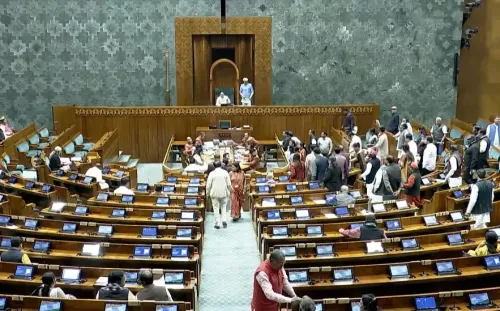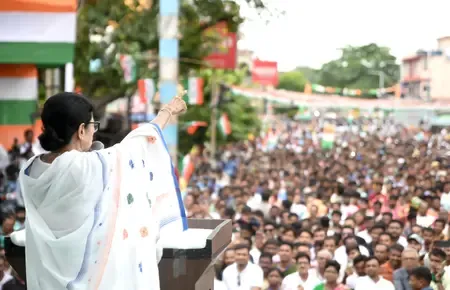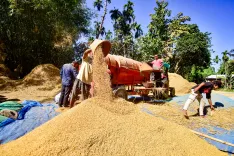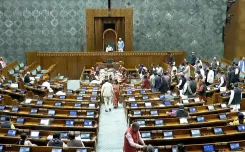Is Akhilesh Yadav Right to Criticize the Government Over the Fertiliser Crisis?
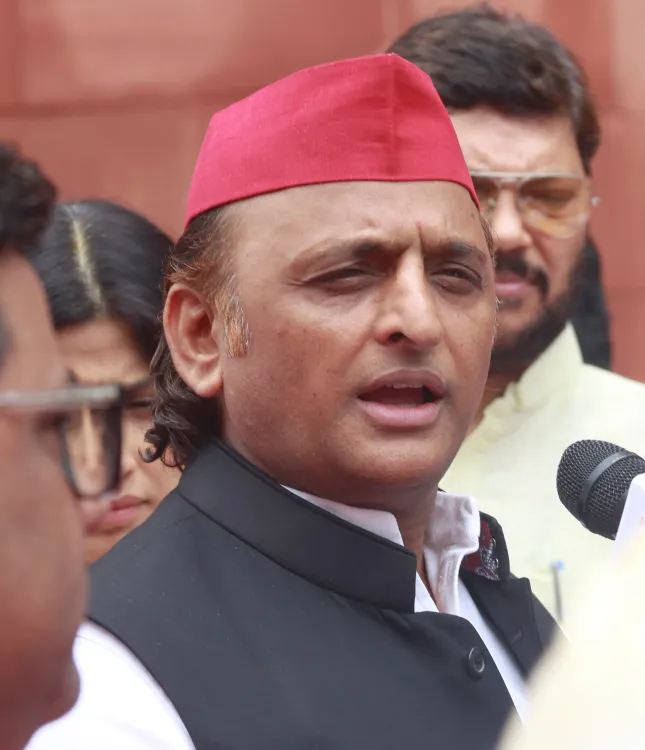
Synopsis
Key Takeaways
- Farmers are struggling with fertiliser shortages.
- Akhilesh Yadav criticizes the BJP's handling of the situation.
- Protests are occurring across multiple districts.
- Black marketing and profiteering are rampant.
- The government is accused of repression instead of providing solutions.
Lucknow, Aug 19 (NationPress) The National President of Samajwadi Party (SP), Akhilesh Yadav, has sharply criticized the Bharatiya Janata Party (BJP) for the dire fertiliser crisis faced by farmers in Uttar Pradesh and throughout the nation since the BJP assumed power.
The former Chief Minister of UP stated that farmers are grappling with the unavailability of both urea and DAP—two vital fertilisers for Kharif crops.
He alleged that rampant black marketing and profiteering in fertilisers have rendered farmers powerless, driving them to protest in numerous districts.
“Farmers are enduring an ongoing crisis under the BJP regime. Since these individuals took control, issues related to acquiring urea and DAP have escalated. Initially, there was a fertiliser shortage for paddy and other crops, and urea is still not accessible for application. Farmers are forced to demonstrate in various locations merely to obtain fertilisers,” Yadav stated.
The SP leader asserted that for several months, reports of fertiliser shortages from cooperative societies have been emerging from different regions of the state. He accused the government of employing repression rather than providing solutions.
“Farmers are waiting in line for fertilisers, but instead of receiving fertilisers, they are met with brutality. The BJP’s purported double-engine government has utterly failed to provide farmers with fertilisers, seeds, and irrigation resources,” he claimed.
Yadav identified several districts, including Lucknow, Ayodhya, Sultanpur, Shravasti, and Sonbhadra, where farmers continue to protest and endure long waits for fertilisers.
“This year, since the commencement of the Kharif season, farmers have been in a relentless struggle for fertilisers. They are repeatedly deceived,” he remarked.
Accusing the ruling BJP of making grand promises while delivering little, the SP leader added, “This government only offers false assurances. It fails to fulfill them and does not prepare adequately. The BJP has betrayed the farmers.”



